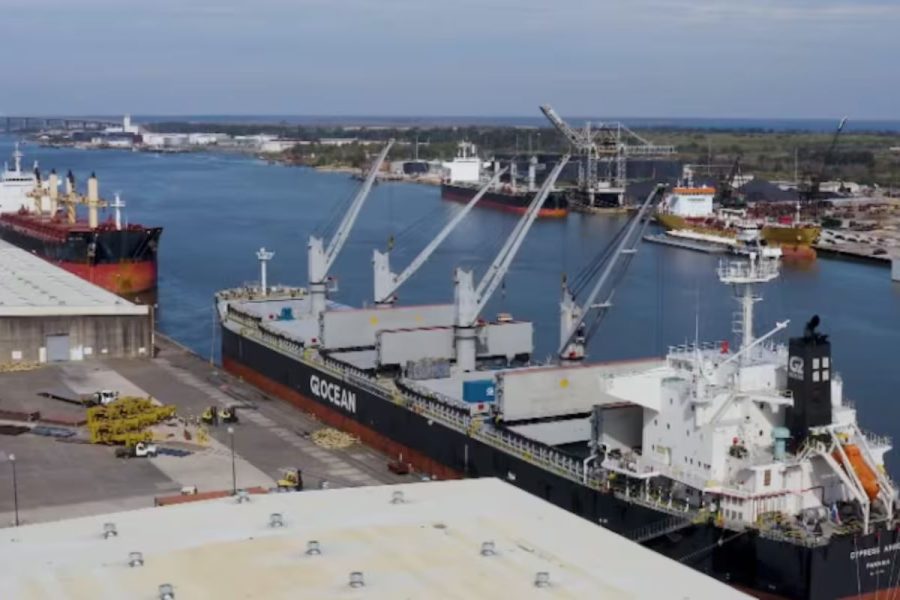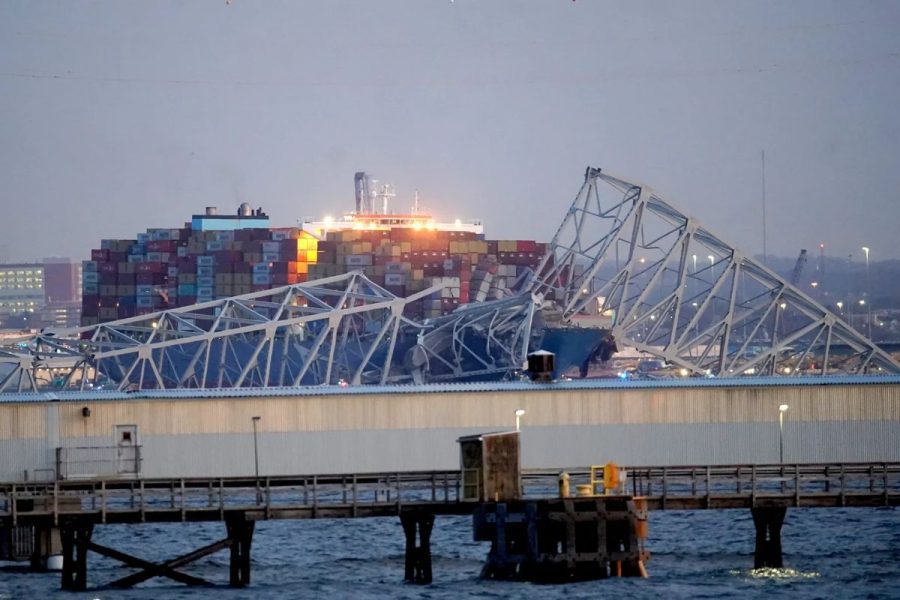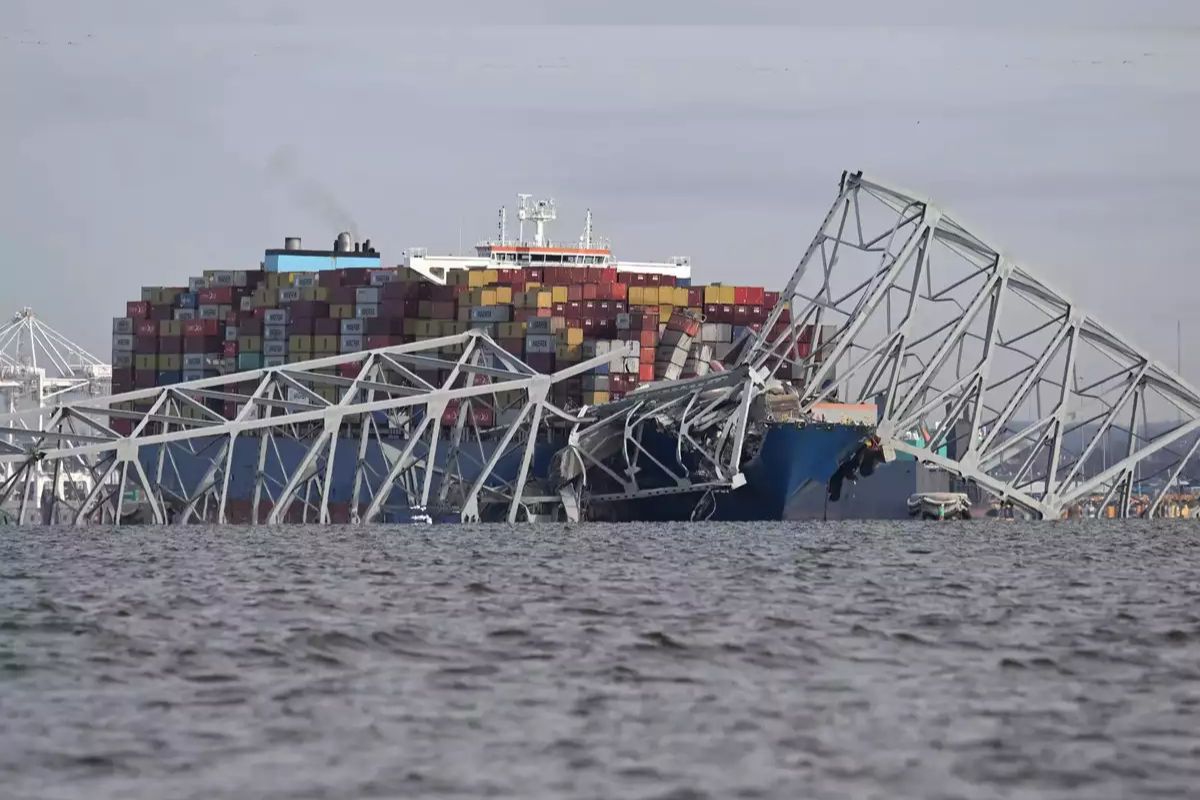Baltimore Bridge Collapse: The Baltimore Bridge collapse, due to a cargo ship collision, has heavily affected the Mobile Port’s operations. With the Port of Baltimore closure disrupting supply chains, Mobile Port is essential as an alternative, managing redirected shipments effectively.
Challenges in operational capacity and efficiency arise, highlighting the port’s significant importance in various sectors. The port’s strategic location and ability to handle diverse cargoes play a critical role in the regional and national economic landscape. The impacts on the Mobile Port post-collapse showcase its key role in maritime trade, hinting at broader implications for the industry and economy.
The disastrous collapse of the Francis Scott Key Bridge in Baltimore, resulting from a collision with a cargo ship that had lost power, has brought to light critical concerns regarding the safety and resilience of maritime infrastructure. This tragic event underscores the potential vulnerabilities within the maritime transportation system and the urgent need for enhanced safety protocols.
The collapse of such an important bridge has not only resulted in a significant loss of lives but has also disrupted the flow of goods and services through the region, impacting both local and national economies.
The investigation into the causes of this disaster is essential to prevent similar incidents in the future. Questions have been raised about the maintenance of the bridge, the navigation protocols for ships during power loss situations, and the emergency response procedures in place. Authorities are now tasked with thoroughly examining these factors to make sure that maritime infrastructure is fortified against such catastrophic events.
The lessons learned from this tragic collapse must drive improvements in safety measures to protect both lives and the integrity of critical infrastructure.
Impact on Maritime Trade and Ports
The implications of the Baltimore bridge collapse on maritime trade and ports are reverberating across the nation, prompting a strategic reassessment of cargo flows and operational contingencies. With the closure of the Port of Baltimore, a key hub for international trade, the ripple effects are being felt far and wide. The rerouting of shipments due to the closure is disrupting established supply chains and trade routes, leading to delays and increased costs for businesses involved in maritime trade.
As ports nationwide prepare for potential disruptions, the focus shifts to ports like Mobile, which are expected to step in and handle diverted cargo. Mobile’s strategic location and capacity make it well-positioned to absorb some of the traffic that would have otherwise passed through Baltimore. However, this sudden influx of cargo poses challenges with operational capacity and efficiency, requiring swift adaptations to guarantee the smooth flow of goods and minimize disruptions to maritime trade.
As the situation continues to evolve, ports across the country are closely monitoring developments and implementing contingency plans to mitigate the impact of the Baltimore bridge collapse on maritime trade.

ALSO READ: Renovation of Pascagoula Public Library $4.22M Project Begins
The Role of the Port of Mobile and Economic Implications
Amidst the aftermath of the Baltimore bridge collapse, an analysis of the Port of Mobile’s important role reveals its significant economic implications and strategic importance in maritime trade operations. As the second-fastest-growing container port in the United States, Mobile emerges as a essential alternative following the recent disruption. Its capacity to absorb redirected shipments not only mitigates potential supply chain bottlenecks but also underscores the port’s resilience and adaptability in times of crisis.
Experts emphasize the Port of Mobile’s pivotal contributions across various industries, particularly in the automotive and aerospace sectors. Despite its size relative to larger ports, Mobile’s strategic location and diverse cargo handling capabilities position it as a critical node within the nation’s maritime infrastructure. The port’s ability to facilitate efficient trade flows and accommodate a range of cargo types further cements its significance in the regional and national economic landscape, solidifying its reputation as a key player in the maritime industry’s ecosystem.
News in Brief
The collapse of the Baltimore bridge has had significant impacts on maritime trade and ports, including the Port of Mobile.
The economic implications of this event are far-reaching and require further investigation to fully understand the extent of the damage caused.
It is important for authorities to conduct a thorough analysis of the situation and implement measures to prevent similar incidents in the future to guarantee the smooth operation of port activities.

Our Reader’s Queries
What is the port of Baltimore used for?
“Baltimore, situated closer to the Midwest than any other East Coast port, serves as a pivotal center for vehicles, containers, and commodities. It proudly holds the top spot among U.S. ports for automobiles and light trucks, boasting a remarkable record of 850,000 vehicles handled just last year.”
What are the effects of bridge failure?
“Beyond the tragic loss of lives, service disruptions have significant negative impacts on economic growth. Take, for instance, the Quebec Bridge collapse of 1907, which claimed 75 lives during construction, or the Silver Bridge failure in 1967, resulting in the deaths of 46 individuals during its service.”
What is the importance of the Baltimore bridge?
“The port stands as a crucial shipping hub along the East Coast. Spanning the Patapsco River, the bridge serves as a vital passage for massive cargo ships, connecting them to the Chesapeake Bay and onward to the vast expanse of the Atlantic Ocean.”
How will Baltimore Bridge affect shipping?
“Following the collapse of a Baltimore bridge struck by a container ship on Tuesday, experts warn of potential weeks-long delays, reroutes, and increased costs for the shipping industry.”

